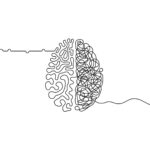Psychosis is a condition that affects a person’s mind and causes changes to the way that they think, feel and behave. A person who experiences psychosis may be unable to distinguish between reality and their imagination. People who are experiencing psychosis are sometimes referred to as psychotic. They may have hallucinations (where you see or hear things that are not there) and/or delusions (where you believe things that are untrue).
Here comes the sun: associations between daily light exposure and psychiatric disorders

Emiliana Tonini summarises a large-scale cross-sectional study, which suggests that encouraging individuals to increase their exposure to bright natural light during the day and minimise exposure to artificial light at night may help with our mental health.
[read the full story...]








